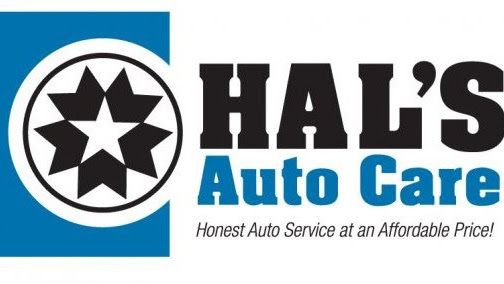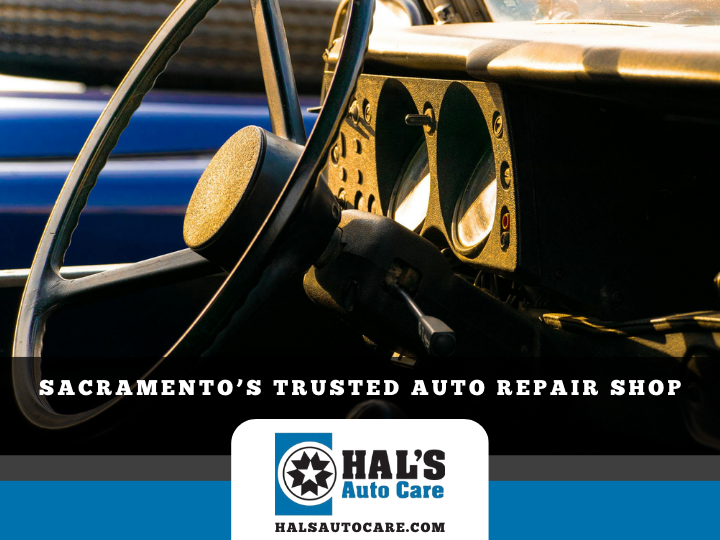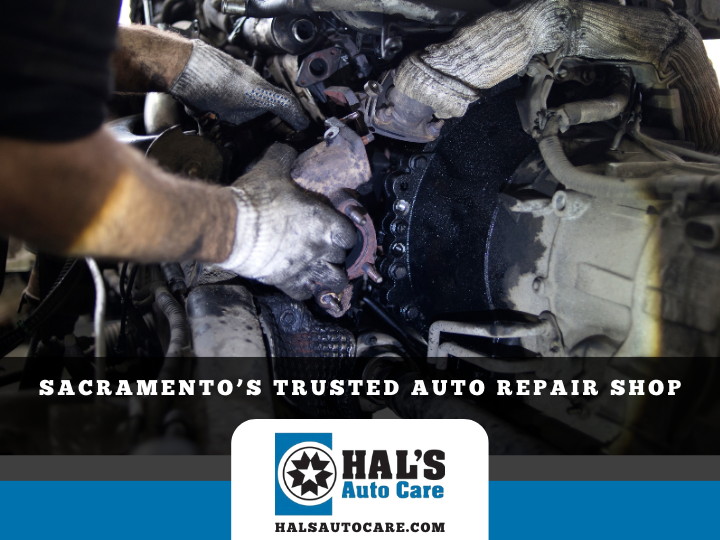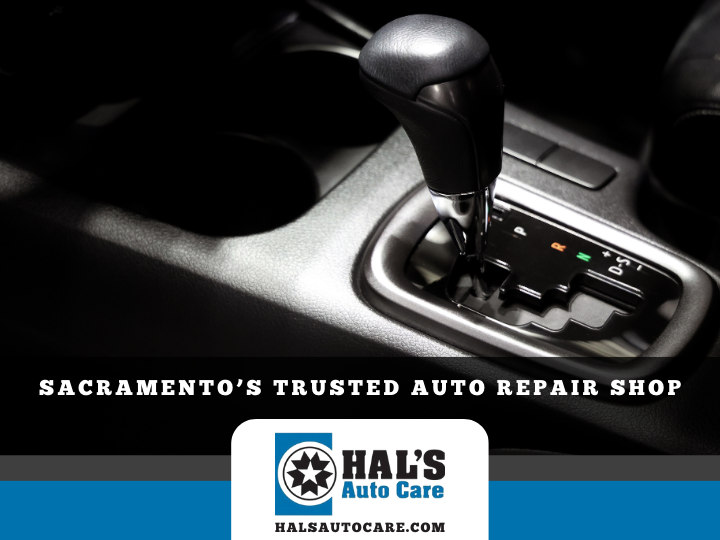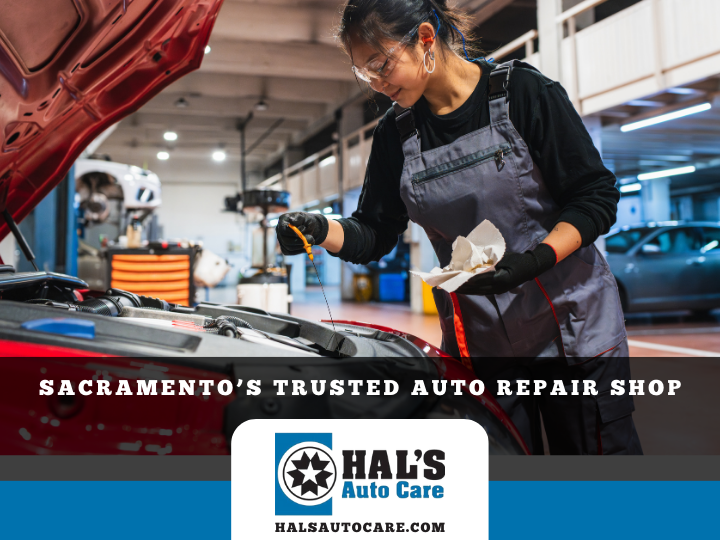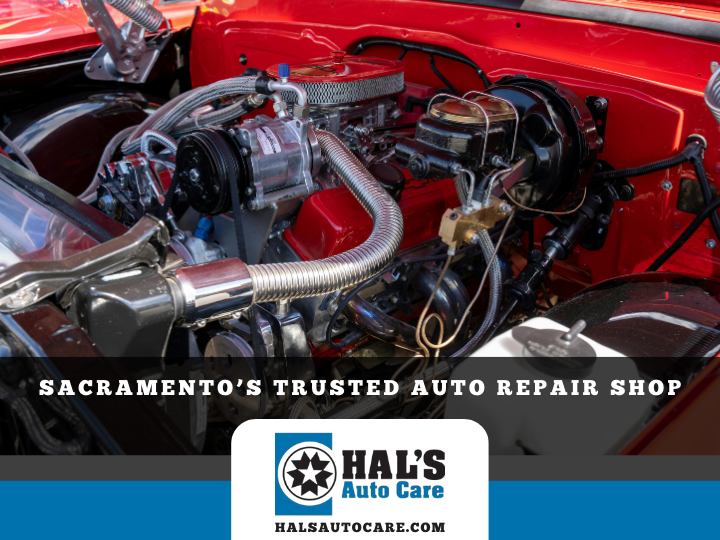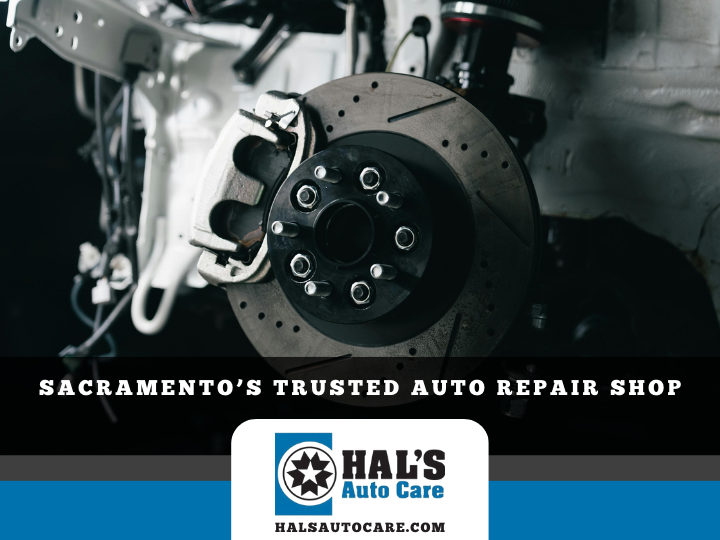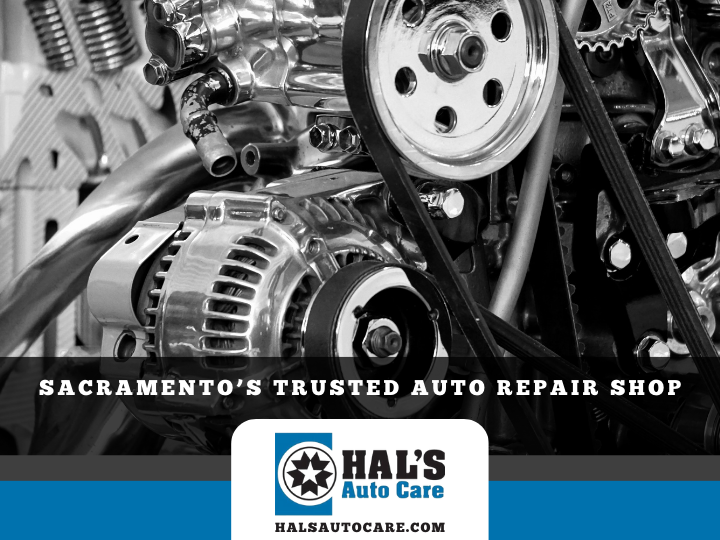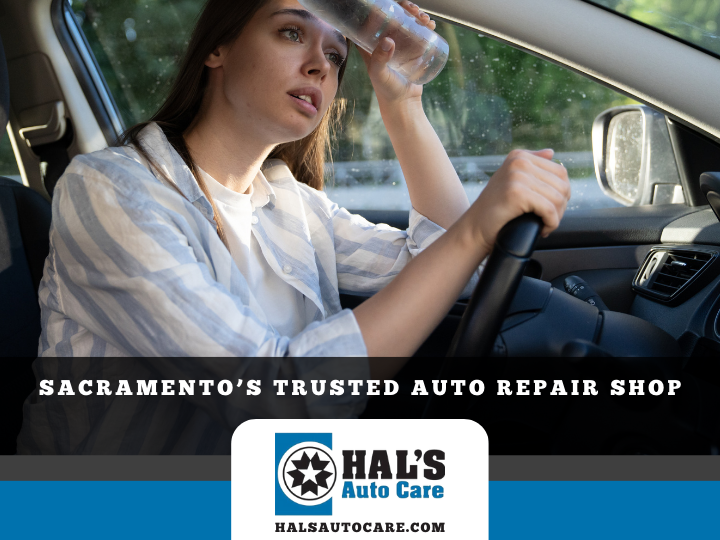Why is My Car Overheating if I Have Coolant?
Why is My Car Overheating if I Have Coolant?
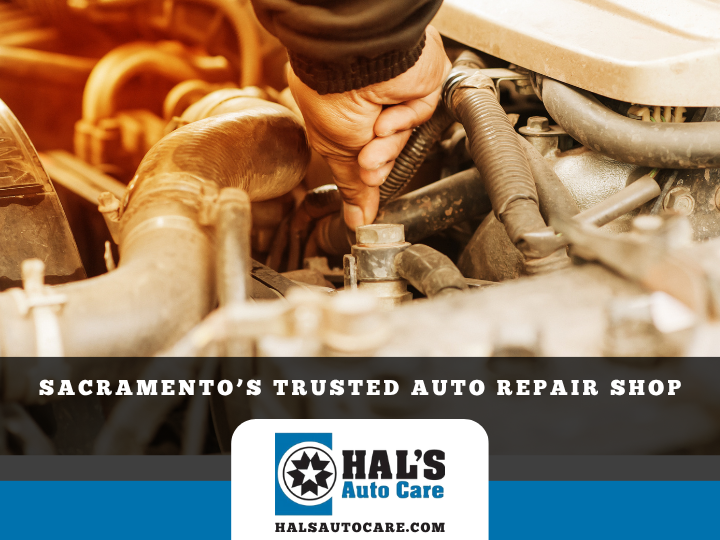
Why Is My Car Overheating If I Have Coolant?
Don’t Let a Full Tank Fool You | Hal’s Auto Care – Sacramento, CA
You're sitting in Sacramento traffic. Your A/C is on, the sun is relentless, and suddenly you notice the temperature gauge creeping higher. The engine smells hot. You check the coolant reservoir—it’s full. So why is your car still overheating?
At
Hal’s Auto Care, we hear this every week:
“I have coolant, but my car’s overheating—what’s going on?”
The short answer:
coolant in the tank doesn’t mean the cooling system is working.
Overheating with coolant is one of the most misleading and dangerous problems a vehicle can have. Let’s walk through what’s really happening—and how we protect your vehicle from long-term engine damage.
1. The Coolant Isn’t Circulating
Coolant must move through the system to absorb and release heat. If it’s sitting still, it’s not doing its job.
Common reasons coolant stops moving:
- Stuck thermostat – blocks flow from engine to radiator
- Failed water pump – circulation shuts down entirely
- Clogged radiator – buildup or corrosion prevents flow
- Collapsed hoses – look fine on the outside but kinked inside
We perform full system flow diagnostics and use thermal imaging to detect where heat is building up—and where coolant is not moving.
2. Cooling Fans Aren’t Engaging
At low speeds or while idling, your radiator needs electric fans to keep air moving through the system. When they fail, the radiator can’t cool the coolant—and the temperature climbs quickly.
Most common causes of fan failure:
- Worn-out fan motor
- Failed relay or fuse
- Faulty temperature sensor
- Broken wiring or connector corrosion
Hal’s Auto Care technicians test fan function under live load, checking for both activation and timing to ensure the fan engages exactly when it should.
3. Air Trapped in the Cooling System
Air pockets in the system disrupt flow and cause overheating—even when the coolant level is technically “full.” Pockets of trapped air prevent coolant from reaching critical components, leading to localized hotspots.
Air enters the system due to:
- Recent coolant service that wasn’t bled properly
- Small leaks drawing air in
- Head gasket damage allowing exhaust gases into the cooling system
We use vacuum-based coolant refill and pressure integrity testing to ensure the system is fully sealed and air-free.
4. Radiator Cap Failure
This simple component is often overlooked—but a radiator cap that doesn’t hold pressure compromises the entire cooling system. Without proper pressure, coolant boils earlier, vapor forms in the system, and cooling efficiency drops.
Watch for:
- Coolant overflow
- Bubbling in the reservoir
- Random overheating
- Collapsed hoses
At Hal’s, we pressure-test every radiator cap to confirm it can maintain correct system pressure under operating temperature.
5. Internal Engine Issues – Head Gasket Failure
If your head gasket is leaking, it may allow exhaust gases to enter the coolant or coolant to leak into the engine. This creates overheating that’s hard to explain from the outside—but deadly to your engine.
Warning signs:
- White smoke from the exhaust
- Bubbling in the overflow tank
- Oil that appears milky or foamy
- Coolant levels dropping without visible leaks
- Temperature spikes without a pattern
We conduct chemical block tests, pressure tests, and combustion leak analysis to identify head gasket failures before they destroy your engine.
Why “Coolant is Full” Isn’t Enough
Here’s what every driver needs to understand:
A full coolant reservoir doesn’t mean your engine is safe.
Your cooling system relies on:
- Uninterrupted coolant circulation
- Fan-assisted heat dissipation
- Pressure regulation from the radiator cap
- A sealed, air-free system
- Internal engine integrity
When even one piece of that puzzle fails, overheating follows—regardless of fluid levels.
Hal’s Auto Care Cooling System Diagnostic
When you bring your vehicle to Hal’s Auto Care with overheating concerns, we don’t guess or patch. We provide a full diagnostic that includes:
- System pressure and flow testing
- Fan circuit activation and thermal behavior checks
- Radiator cap pressure validation
- Hose, radiator, and thermostat evaluation
- Vacuum fill and air purge procedure
- Head gasket leak detection and chemical testing
We don’t just top off fluids—we fix the real problem.
Protect Your Engine Before It’s Too Late
An overheating engine can lead to thousands of dollars in damage. If your car is running hot—even with coolant showing in the reservoir—don’t drive it another mile.
Call or visit Hal’s Auto Care. We’ll find the issue, explain it clearly, and get your vehicle back to reliable performance.
Schedule Your Cooling System Evaluation Today
Hal’s Auto Care
2425 Tower Ave, Sacramento, CA 95825
(916) 485-9215
https://halsautocare.com/services/
For more information please watch the video


